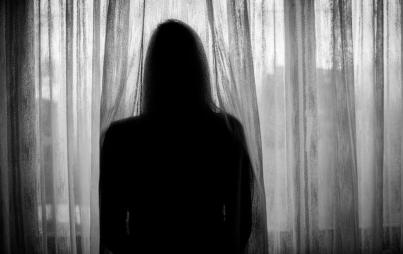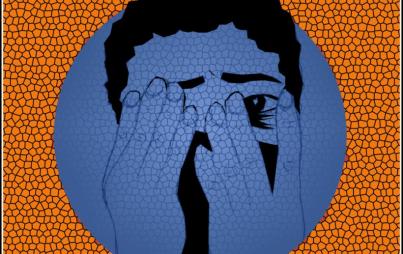
Conor Oberst, Bright Eyes singer, has been cleared of rape charges.
The woman who accused Conor Oberst—a musician best known for his work with the band Bright Eyes—of raping her when she was 16 recanted her allegation yesterday in an abysmal situation where absolutely no one wins . . . even a little.
Twenty-seven year-old Joanie Faircloth’s accusations against Oberst first cropped up in December in the comments section of an unrelated post on the site xoJane. But soon the allegations were fleshed out on Tumblr and from there were picked up by the mainstream media. Oberst, horrified, instantly called her claims "absolutely, unequivocally false" and, after attempting to get her to recant her statements outside of court, filed a lawsuit against Faircloth in February. He demanded that she recant her story, which he referred to as “an insult to the millions of actual rape victims around the world.” Well, yesterday Faircloth finally did. This provides solace to Oberst and his damaged reputation, but basically highlights her false rape accusation as a giant step back for everyone.
Faircloth’s notarized statement yesterday read:
The statements I made and repeated online and elsewhere over the past six months accusing Conor Oberst of raping me are 100% false. I made up those lies about him to get attention while I was going through a difficult period in my life and trying to cope with my son’s illness. I publicly retract my statements about Conor Oberst, and sincerely apologize to him, his family, and his fans for writing such awful things about him. I realize that my actions were wrong and could undermine the claims of actual sexual assault victims and for that I also apologize. I’m truly sorry for all the pain that I caused.
The emo singer and his work have both suffered in light of Faircloth’s claims. His father and business manager wrote that Oberst’s May album “Upside Down Mountain” had “sold substantially fewer copies than his prior albums, despite receiving some of the most positive reviews of his career”—and guessed that legal fees and travel expenses aside, the estimated cost of Faircloth’s allegation was about $700,000. Then there was the outcry from former Bright Eyes’ die-hards and the shuttering of fan websites.
And that's not to mention the singer’s own personal pain and distress. Oberst sued Faircloth for $1 million for damages to his "reputation, standing in the community, shame, mortification, hurt feelings, embarrassment, and humiliation," and understandably so.
A Lose-Lose-Lose Situation
All of which gets to the heart of this false rape accusation debacle: an innocent singer and his reputation suffer, fears of sexual assault false reporting get amplified (when in reality, only 2-8% of victims’ accusations are made up), and life gets even harder for those who are actual survivors.
Because here’s the sad truth.
Honest people are raped. Lying, catfishing people are raped. The young, the old, students, etc.—anyone can be a victim. The only common thread for these survivors, is how challenging it is to report such attacks in our society’s climate.
The New York Times, in fact, just this weekend ran a harrowing, in-depth article on a mishandled assault case at Hobart and William Smith Colleges. Its title says it all: “Reporting Rape, and Wishing She Hadn’t." It’s a theme that is all too present in cases all over the country (and in this one, the girl who reported her rape, despite witnesses, recordings of the incidents, and medically documented evidence of sexual trauma, received no recourse from her college—instead only a bungled investigation where the football players accused were completely cleared.)
Ours is also a culture where a teenage girl’s rape has gone viral as a meme, and even days after media outcry and reports of other victims having suffered the same fate, the brave survivor continues to be cyberbullied and shamed. A Houston-based rapper even wrote a song that riffs on the sick hashtag #jadapose, which asks social media users to mock the victim by mimicking her passed-out state.
She now must be homeschooled.
Rape victims all over the country are let down by their universities and judicial systems, deserted by friends, slut shamed, bullied, and thwarted by coordinated mens rights activists’ efforts. False rape accusations, of course, serve only to worsen their plight—all of which, to bring this full circle, Oberst is keenly aware of. In additional to grappling with his tarnished reputation, a source close to Oberst claimed he was “sick” over the notion that his lawsuit could make him a poster boy for men’s rights activists, or that he is contributing to the silencing of rape victims.
In fact, he plans to donate the proceeds of his suit against Faircloth to charities that support victims of gender-based violence. But, because this is a scenario that just endlessly sucks, Oberst is unlikely to be able to make any kind of a donation, given that Faircloth seems totally cash-strapped—unable to care for her sick toddler and unlikely to be able to contribute in the suit.
Like we said, this is a situation in which absolutely no one wins.
Image: Wikimedia Commons






